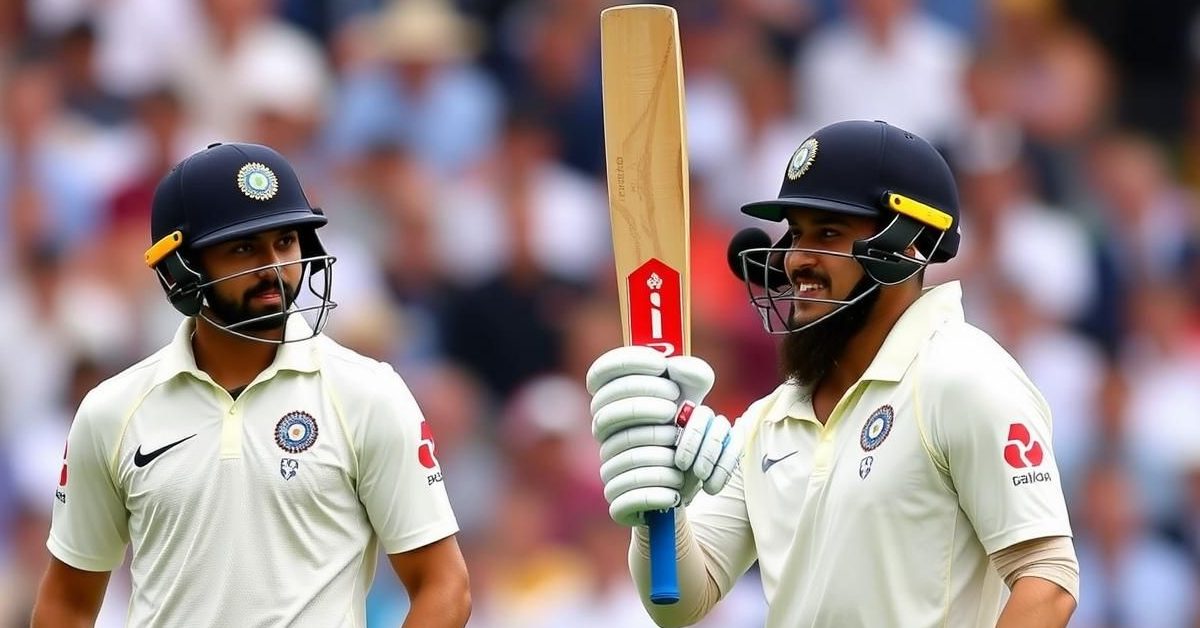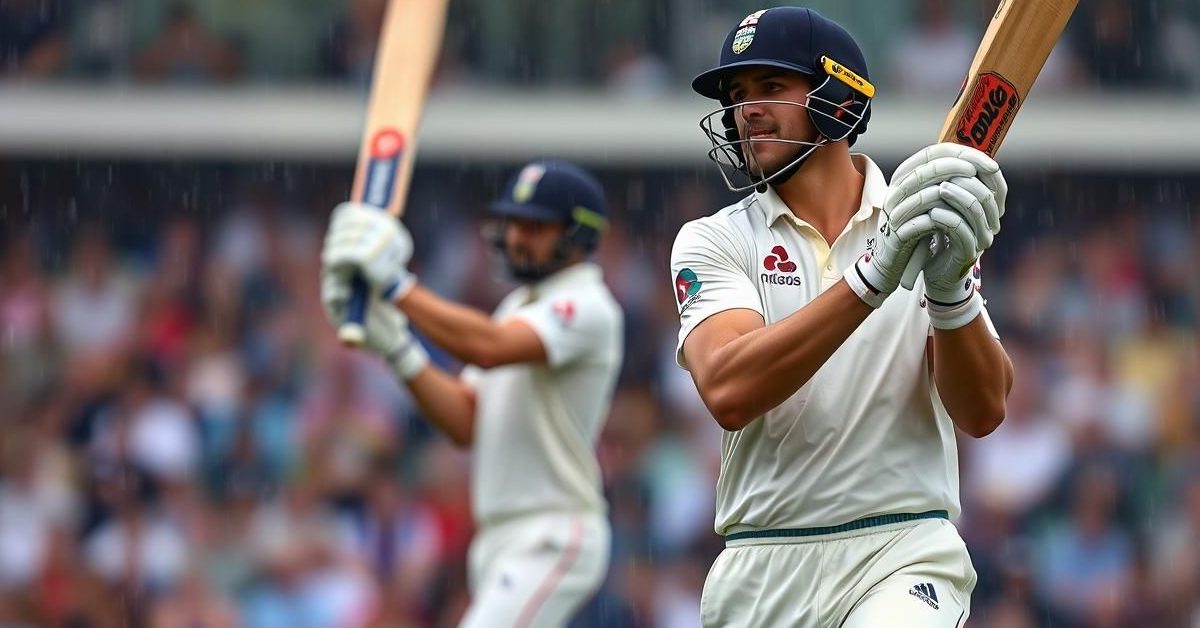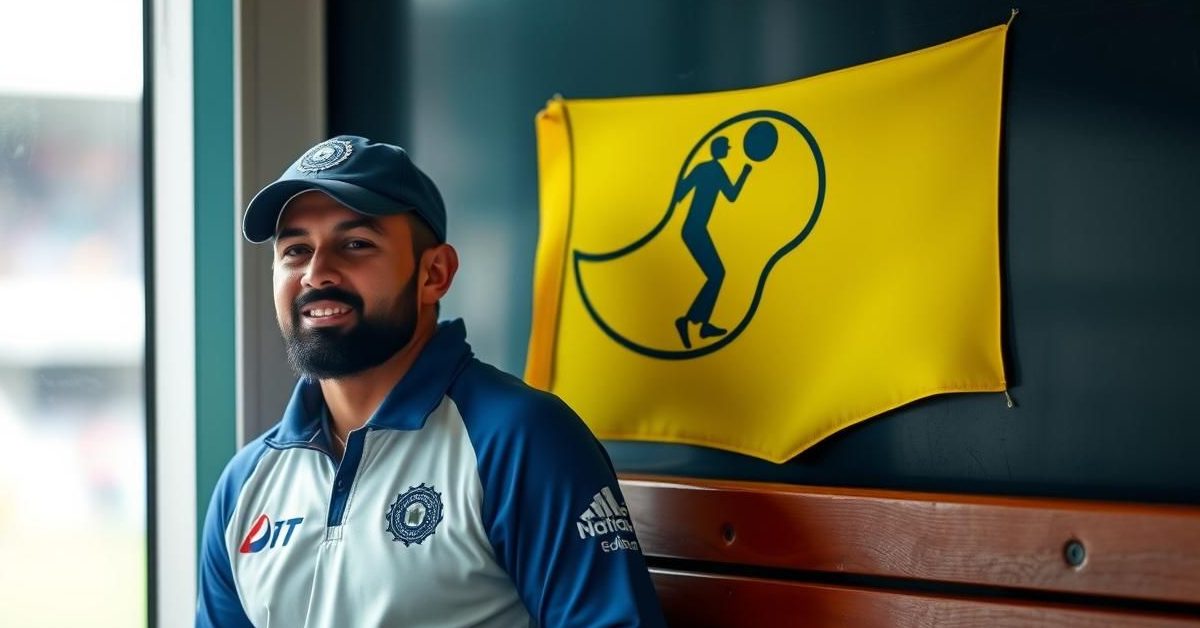A recent Test match between India and England in Manchester sparked controversy when England captain Ben Stokes offered a draw, which Indian batsmen Ravindra Jadeja and Washington Sundar declined, leading to heated exchanges and strong criticism from former Indian spinner Ravichandran Ashwin.
The Manchester Standoff
The final day of the fourth Test was nearing its end with one hour remaining. England’s captain, Ben Stokes, approached Indian batsmen Ravindra Jadeja and Washington Sundar, offering a handshake and a draw. However, the Indian duo, who were nearing centuries and building a formidable partnership, refused the offer.
This refusal reportedly frustrated Stokes, who then resorted to bowling part-timers Harry Brook and Joe Root in the mandatory final hour. Stokes also engaged in verbal exchanges with Jadeja, questioning his desire to score a century against a less experienced bowler like Harry Brook.
Ashwin’s Sarcastic Dig
Reacting to the incident, veteran Indian spinner Ravichandran Ashwin didn’t hold back. On his YouTube channel, ‘Ash Ki Baat’, Ashwin sarcastically suggested that Stokes should have gone to extreme lengths, like asking his bowlers to bowl underarm, reminiscent of the infamous Greg Chappell incident.
Ashwin dismissed any talk of “spirit of cricket” or “sportsmanship” in this context, calling it “ridiculous.” He questioned the double standards, arguing that a captain has no right to expect an opponent to give up a potential milestone out of frustration.
Rules vs. Frustration
According to Ashwin, the rules allow for a draw agreement only if both captains believe the game cannot reach a result. In this case, India’s batsmen were clearly pushing for individual milestones and not looking to simply “close out” the game.
Ashwin suggested Stokes’ decision to bowl part-timers stemmed from two reasons: protecting his frontline bowlers from fatigue and, more significantly, his own frustration. He emphasized that the latter, while understandable, does not justify expecting opponents to sacrifice their game.
Chasing Milestones: A Right, Not a Privilege
At the time of Stokes’ offer, Jadeja was on 89 and Sundar on 80. Both went on to achieve their centuries—Sundar’s maiden Test hundred and Jadeja’s fifth. Ashwin staunchly defended their decision to bat on, stating that a player who has battled hard for a century has every right to pursue it.
He challenged the notion that a century against a part-timer is less valuable, pointing out that players train to score runs against any bowler. “Bring Steve Harmison, bring Flintoff! They wouldn’t say no. You’re bowling Harry Brook—that’s your mistake, not ours,” Ashwin quipped.
“Double Standards” and Sledging
The incident also saw other English players, including openers Zak Crawley and Ben Duckett, engaging in verbal sledging. Crawley was reportedly heard telling Sundar to “get on with it,” while Jofra Archer suggested Sundar should have batted quicker if he wanted a hundred.
Ashwin labeled this behavior “double standards,” questioning if Crawley or Stokes themselves would abandon a century for the “spirit of the game.” He found the entire situation amusing, asserting that England’s frustration had no bearing on India’s right to play their game.
- Ben Stokes offered a draw in the final hour of play, which Indian batsmen Jadeja and Sundar declined.
- Jadeja and Sundar went on to score centuries, prompting sledging from English players.
- Ravichandran Ashwin sarcastically compared Stokes’ actions to Greg Chappell’s underarm incident.
- Ashwin argued that pursuing individual milestones is a right, not a breach of the “spirit of cricket.”
- He called England’s frustration and behavior “double standards,” declaring the draw an “Indian win.”
The incident has reignited debates around sportsmanship, rules, and the intensity of Test cricket, highlighting how different teams interpret the game’s unwritten codes.













